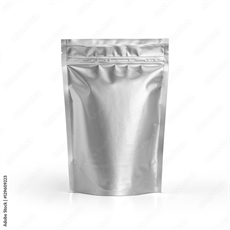Standards for biodegradable plastic bags are essential to ensure that these bags meet specific criteria for biodegradability, compostability, and environmental safety. Various international and national standards organizations have developed guidelines and certifications to assess and verify the performance of biodegradable plastic bags. Here are some of the most commonly recognized standards and certifications for biodegradable plastic bags:
- EN 13432 (European Standard): This European standard defines the requirements for packaging recoverable through composting and biodegradation. It sets criteria for materials and packaging to be considered biodegradable and compostable. Bags that meet EN 13432 are tested for disintegration, biodegradation, and ecotoxicity.
- ASTM D6400 (American Standard): Developed by ASTM International (formerly known as the American Society for Testing and Materials), ASTM D6400 outlines the requirements for plastics that are designed to be composted in municipal and industrial composting facilities. It includes specifications for biodegradability, disintegration, and environmental impact.
- ISO 17088 (International Standard): ISO 17088 provides guidelines for determining the compostability and biodegradability of plastics. It specifies test methods for evaluating the biodegradability of plastics under aerobic conditions in natural environments.
- ASTM D6868: This ASTM standard specifically addresses the biodegradability of plastics when subjected to anaerobic conditions, such as those found in landfills. It assesses the methane-producing potential of plastics.
- OK Compost (TÜV Austria): The OK Compost certification is issued by TÜV Austria and indicates that a product, including plastic bags, is suitable for industrial composting facilities. It verifies that the product will break down efficiently in these facilities.
- Home Compostable Certification (e.g., Seedling Logo): Some biodegradable bags are certified as suitable for home composting. These certifications often involve testing for decomposition within a specific timeframe and at certain temperatures, ensuring that the bags can break down in typical backyard composting setups.
- Biodegradable Plastic Certification (Various Organizations): Different organizations may offer their own biodegradable plastic certifications and logos. These certifications typically involve meeting specific criteria for biodegradability and environmental safety.
- Local or National Standards: Some countries may have their own standards and certifications for biodegradable plastics. These standards may align with or supplement international standards.
When choosing biodegradable plastic bags, it’s essential to look for products that carry one or more of these certifications or logos on their packaging. These certifications provide assurance that the bags have undergone testing and meet recognized standards for biodegradability and compostability.
However, it’s also crucial to consider local regulations and guidelines, as standards and certifications can vary by region. Additionally, proper disposal and management of biodegradable bags are essential to ensure they biodegrade as intended and minimize their environmental impact.














